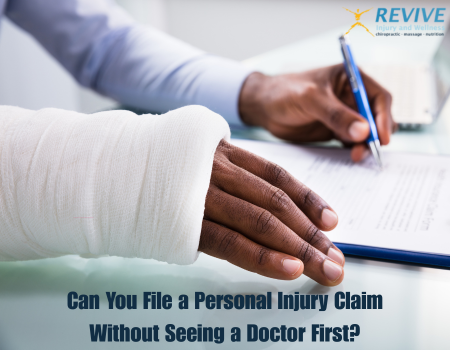
When you’re involved in an accident — whether it’s a car crash, slip and fall, or workplace injury — your first instinct might be to figure out who’s at fault and what to do next. Many people also wonder about the legal steps they can take, including filing a personal injury claim. Medical documentation plays a vital role in personal injury claims because it provides clear evidence of your injuries and ties them directly to the incident. Let’s break this down and explain why seeing a doctor as soon as possible is crucial for both your health and your claim.
Why Medical Attention Matters After an Accident for Personal Injury Claims
Even if you feel fine right after an accident, it doesn’t mean you haven’t been injured. Some symptoms take a while to show up. Conditions like whiplash, internal injuries, concussions, and soft tissue damage can be subtle at first but become more serious over time.
A doctor can conduct a proper evaluation, run tests if needed, and identify issues you might not notice immediately. Prompt medical care can catch these problems early, help prevent complications, and start you on a path to recovery.
From a legal perspective, medical records created right after an accident are powerful evidence. They help document:
- The type and severity of your injuries
- The recommended treatment plan
- The direct link between your injuries and the accident
- The physical and emotional impact on your daily life
Without this documentation, proving the extent of your injuries and how they relate to the incident can be difficult.
Can You Still File a Claim Without a Doctor’s Visit?
Legally speaking, you can still file a personal injury claim if you haven’t seen a doctor. However, be prepared for challenges. Insurance companies and defense attorneys often look for reasons to deny or minimize claims, and a lack of medical records is a convenient excuse.
Without medical evidence:
- The insurance company may argue that your injuries aren’t serious enough to warrant compensation.
- They might claim that your injuries were caused by something else, unrelated to the incident.
- The value of your claim may be significantly reduced, as there’s no professional record of treatment, expenses, or recovery time.
In essence, while you can file a claim without seeing a doctor, doing so weakens your position and can severely limit your chances of receiving fair compensation.
How Timing Affects Your Claim
The timing of your medical visit is just as important as the visit itself. Waiting too long to see a doctor after an accident can raise questions about whether your injuries are genuinely connected to the incident. Many insurance adjusters and legal teams use delays in treatment as a tactic to dispute or lower the value of a claim.
Most experts recommend seeking medical care within 24 to 72 hours after an accident, even if you feel fine. This proactive step protects both your health and your legal rights.
What If You Didn’t See a Doctor Right Away?
If days or even weeks have passed and you haven’t seen a doctor yet, it’s not too late — but you should schedule an appointment as soon as possible. Make sure to accurately share with your doctor both the incident and when you started experiencing any discomfort or issues. The doctor can still document your condition and provide a professional opinion linking your injuries to the incident.
You should also inform your attorney (if you have one) about the situation. They can advise on how to strengthen your claim moving forward and whether additional evidence, like witness statements or photographs, might help support your case.
While it’s legally possible to file a personal injury claim without seeing a doctor first, it’s rarely advisable. Prompt medical attention safeguards your health, provides vital documentation for your case, and strengthens your chances of securing fair compensation for your injuries.
If you’ve been in an accident, prioritize your health — see a doctor promptly, document your symptoms, and consult a personal injury attorney if you’re considering filing a claim. Taking these steps ensures you’re not only looking after your physical recovery but also safeguarding your legal rights.


